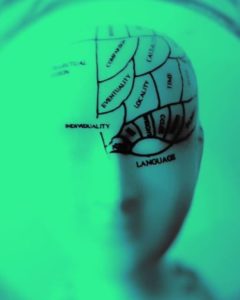Humans are creatures of habit. We like routine, and we want things to stay the same. This is because change is scary, and the unknown can be dangerous. So, when something threatens our view of the world, we tend to deny it. Denial is one of the Mind’s defense mechanisms. It’s a way of protecting ourselves from the truth, but denial is not the only defense mechanism the Mind uses. There are many other ways we protect ourselves from the fact. In this blog post, we’re going to explore some of the Mind’s defense mechanisms. We’ll cover everything from repression to sublimation. By the end of this post, you should have a good understanding of how the Mind protects itself from the truth.
(Image Suggestion: A mind working hard to keep itself safe from the truth.)
1. Denial
Why Do We Deny The Truth?
Denying the truth is a habit that we have developed over time. It is a way of coping with difficult situations and has many negative consequences.
We avoid facing the truth because it is too painful to face. We become blind to reality, and our ignorance becomes bliss. We don’t want to believe that we can do something terrible. We project our flaws onto others and displace our anger onto someone else. We regress back to a simpler time when we were helpless and didn’t have to worry about anything. We rationalize our actions by making excuses for them or by intellectualizing everything, so we don’t have to feel anything.
We form compartments in our Minds where we can put away things we don’t want to think about. For example, I might compartmentalize my life into work, family, friends, etc., allowing me to deal with different aspects of my life more effortlessly. Or I might intellectualize political issues so that I don’t need to consider the implications of my actions on other people’s lives. In either case, these mental constructs limit us from fully experiencing life.
2. Repression
What Is Repression, And How Does It Affect Us?
Repression is pushing something out of our conscious Mind because it is too painful to deal with. It can lead to mental health issues like anxiety and depression, and women are more likely than men to suffer from repression. However, we can overcome this by facing our fears and working through them. This means we must be willing to open up about what is going on in our lives and be open to change.
When repression is intense, it can become difficult to function in our everyday lives. We may avoid discussing what is going on for fear of being judged or criticized. Because we are unsure how to deal with our emotions. This can lead to feelings of loneliness, isolation, and a lack of self-confidence.
However, repression does not have to be a negative experience. If we are willing to face our fears and work through them, it can improve our mental health and overall well-being. Repression affects us all in different ways, but by working through it, we can get back on track and live happier lives.
3. Projection
How Do We Project Our Feelings?
Denial, repression, projection, displacement, regression, systematization, sublimation, and classification are all defense mechanisms we use to cope with our feelings. They allow us to avoid dealing with anxiety and stress from uncomfortable emotions.
We use denial when we refuse to accept reality or facts. For example, a person who is in denial may try to explain away their partner’s cheating as a misunderstanding instead of admitting that their partner has cheated on them.
We use repression to banish anxiety-provoking thoughts, feelings, and memories from consciousness. For example, a repressed person might have trouble talking about their feelings because they fear what other people might think of them.
Projection is when individuals attribute characteristics they find unacceptable to another person. For example, someone projecting might accuse their co-worker of being lazy even though they know this accusation isn’t true.
4. Displacement
How Do We Displace Our Feelings?
Displacement occurs when people redirect emotions from the original target of their anger or frustration to a substitute target. For example, someone displaced might be angry at their boss for giving them difficult work but instead blame the annoying customer next door for making too much noise.
Displacement happens when we take out our frustrations on someone or something else that is harmless.
5. Regression
What Is Regression?
What is regression? In simple terms, regression is a return to an earlier stage of development in the face of stress or adversity. This defense mechanism is typically seen in children but can also be present in adults. Women are more likely than men to use regression to deal with stress. There are several types of regression, including emotional, social, and intellectual. Understanding which type of regression a person is experiencing can help them better cope with stress and adversity.
Emotional regression can be seen in children who become withdrawn or exhibit odd behaviors. Social degeneration occurs when a child draws from social interactions and becomes reclusive. Intellectual deterioration is often seen in young children who cannot learn new information. Each type of regression has unique coping mechanisms, so people need to recognize when they’re experiencing it and find the resources they need to manage it.
6. Rationalization
How Do We Rationalize Our Actions?
We often deny reality in order to protect ourselves from the truth. This is often done through repression, which is when we keep painful memories and thoughts hidden from our conscious mind. Additionally, projection occurs when we attribute our own negative qualities to others. Regression is a defense mechanism whereby we retreat to a more childish state when we are under stress. We often deny reality to protect ourselves from the truth. This is usually done through repression when we keep painful memories and thoughts hidden from our conscious Mind. Additionally, projection occurs when we attribute our own negative qualities to others. Regression is a defense mechanism whereby we retreat to a more childish state when stressed. Rationalization is a way of justifying our actions, even if they are wrong. Sublimation is when we transform negative impulses into positive ones. Reaction formation is when we do the opposite of what we want to do because it goes against our values. Compartmentalization or classification is where we separate different aspects of our lives to avoid conflict.
Intellectualization is when we use logic and reason to distance ourselves from an emotion.
We often use these defense mechanisms to justify our actions. For example, someone feeling angry might rationalize that they are justified in attacking the person because they provoked them. Someone feeling sad might think of happy memories to counteract the negative emotions. People can also use these defense mechanisms to hide their true feelings from other people. For instance, a person might pretend to be happy when upset to avoid burdening or upsetting their partner.
Another example is when a person keeps their personal life separate from work life and doesn’t let any conflicts spill over into their professional life. Lastly, people sometimes use these defenses to excuse poor performance or mistakes. They might think that since something wasn’t meant to happen, it isn’t a big deal, so they don’t need to fix it.
7. Sublimation
What Is Sublimation?

Sublimation is a defense mechanism that allows us to take our sexual or aggressive impulses and change them into nonsexual activities. This can be seen as a way of managing our emotions constructively. By doing this, we can avoid the negative feelings associated with our original impulses. For example, if I have the urge to hit someone but sublimate that impulse by hitting a golf ball instead, I will feel less anger and frustration than if I had actually hit the person.
However, sublimation can also be used negatively. For example, if I repress my true feelings and instead act out in an angry or hostile manner, then I am destructively using sublimation.
Sublimation can be used positively or negatively, but the main thing to remember is that it is an emotion management tool. When used correctly, it allows us to avoid the negative feelings that come with our original impulses. For example, if I have the urge to hit someone but sublimate that impulse by hitting a golf ball instead, I will feel less anger and frustration than if I had actually hit the person.
However, sublimation can also be used destructively. If I repress my true feelings and instead act out in an angry or hostile manner, then I am negatively using sublimation.
8. Reaction Formation
What Is Reaction Formation?
Reaction formation is a defense mechanism when a person’s anxiety-producing thoughts, feelings, or impulses are unrecognized, and the opposite of these things are expressed instead. This can happen individually, such as when a woman attracted to another woman begins to express hateful opinions about lesbians. It can also occur on a societal level, such as when prejudice against a minority group is rampant in a culture.
Reaction formation is crucial because it allows people to avoid dealing with anxiety-producing thoughts, feelings, or impulses. Instead, they oppositely express them. For example, if someone harbors negative beliefs about women who are attracted to other women, they may start expressing positive opinions about men and relationships instead. This helps to disguise the underlying anxiety and prevents it from becoming too overwhelming for the individual.
There are a few different ways that reaction formation can manifest itself. One way is to express opposite thoughts, feelings, or behaviors. For example, a person anxious about being rejected by others may focus on the positive aspects of relationships and ignore any negative feedback. Another way that reaction formation can occur is through direct counter-arguments to anxiety-producing thoughts. For instance, if someone has negative thoughts about themselves, they may try to argue with those thoughts to disprove them. In both cases, the goal of reaction formation is twofold. First, it allows people to avoid facing their innermost fears; second, it helps them remain aware and detached from their anxiety-producing thoughts as they continue to live as usual.
9. Compartmentalization
What Is Compartmentalization?
Compartmentalization is one way that the Mind protects itself from anxiety and stress. It is a process by which the Mind separates ideas and emotions that are too difficult to deal with into different compartments. This allows us to cope with reality in a more manageable way.
Women are more likely than men to use compartmentalization as a defense mechanism. This is because women tend to be more sensitive and emotional than men, and they may find it harder to handle complex thoughts or feelings. Therefore, compartmentalization allows women to separate these thoughts and emotions from their overall personalities.
Compartmentalization can be a helpful way to deal with complex thoughts and emotions. However, it can also be a defense mechanism women use to avoid dealing with complicated feelings. Women are more likely than men to use compartmentalization as a defense mechanism because they tend to be more sensitive and emotional. This is because compartmentalization allows women to separate these thoughts and feelings from their overall personalities.
However, compartmentalization cannot always protect us from the adverse effects of stress and anxiety. For example, if we only deal with our work problems through compartmentalization, we may not be able to handle the focus of our personal life when it becomes too difficult. In addition, compartments can limit our ability to learn new information or develop new relationships.
10. Intellectualization
How Do We Intellectualize?
People who experience anxiety or stress may intellectualize to distance themselves from their emotions. This defense mechanism is often used by people who have experienced trauma, such as abuse, to dissociate from the pain. Intellectualizing can also be a form of avoidance, allowing the individual to focus on something less emotionally charged than their current situation.
However, this defense mechanism is only sometimes negative. For example, it can also solve problems and figure out complex systems. Additionally, intellectualizing can help to reduce feelings of anxiety or stress in the short term.
The use of intellectualization can be a helpful coping mechanism, but it can also lead to harmful consequences. For example, people who intellectualize often become stuck in their thoughts and cannot break free from the cycle of anxiety or stress. Additionally, this type of thinking can make problem-solving difficult and increase feelings of anxiety or stress.
Therefore, individuals need to be aware of when they are using intellectualization as a defense mechanism and why it is helping them. Additionally, they should learn how to break free from the cycle by using other coping tools such as meditation or exercise.
In Conclusion
Denial, repression, projection, displacement, regression, rationalization, sublimation, and compartmentalization are all defense mechanisms that we use to protect ourselves from the truth. They allow us to avoid dealing with difficult emotions and situations. However, these defense mechanisms can have negative consequences. They can lead to mental health issues like anxiety and depression and prevent us from living happy and fulfilling lives. If you use these defense mechanisms excessively, it may be time to seek professional help. Talking to a therapist or counselor can help you work through the emotions and experiences you’re struggling with. It’s also important to be open to change. Be willing to face your fears and work through them. This is the only way to truly overcome the Mind’s defense mechanisms.














